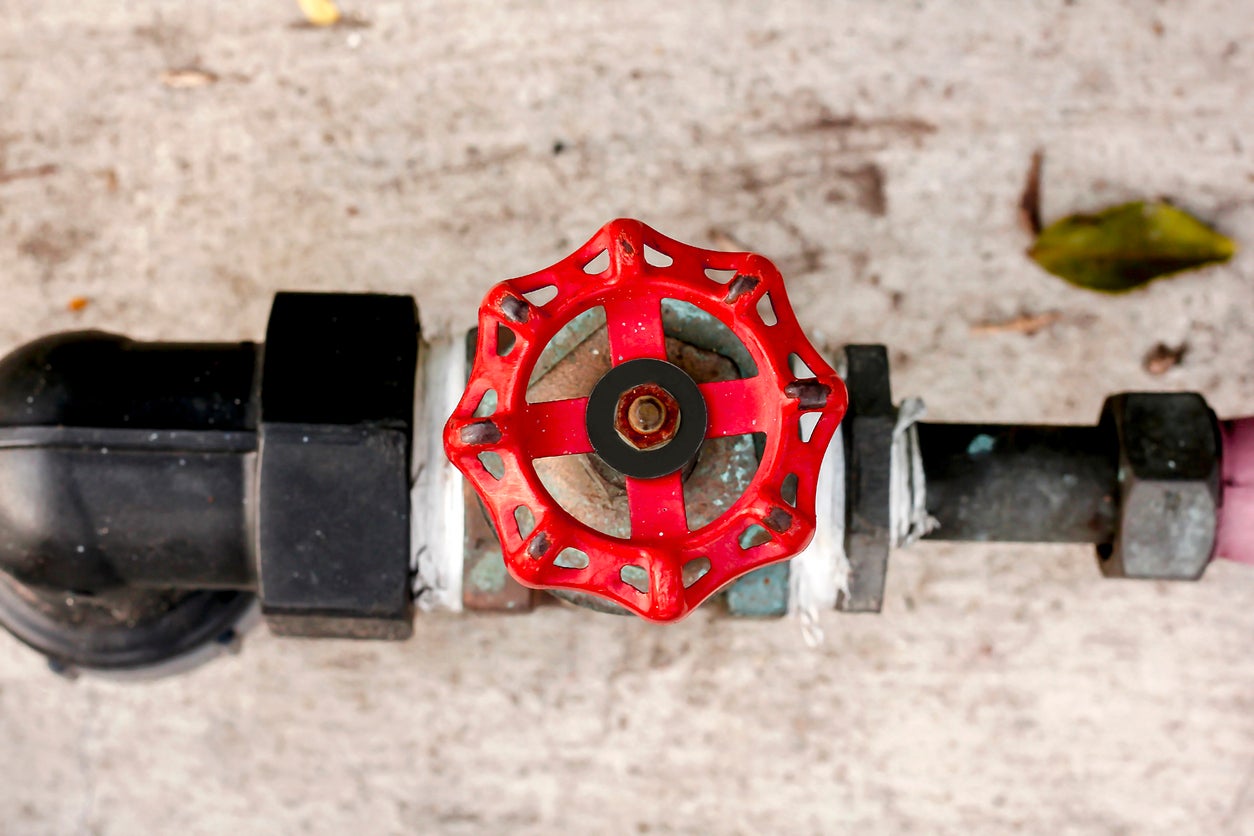We've stumbled upon this post involving 9 Reasons for Low Water Pressure in Your House directly below on the web and concluded it made sense to quickly share it with you on this page.

Low tide stress in your home can be an irritating issue, influencing whatever from showering to washing recipes. If you're experiencing weak water circulation, there are numerous feasible reasons and options to check out. In this guide, we'll go over common reasons for low water stress and sensible actions to address the problem successfully.
Introduction to Low Tide Pressure
Low water stress happens when the circulation of water from your faucets, showers, and various other components is weak than normal. This can make daily tasks more tough and less effective. Comprehending the reasons for low tide pressure is essential to discovering the right option.
Common Sources Of Low Tide Pressure
Faulty Pressure Regulators
Pressure regulators are in charge of preserving constant water pressure in your home. If they malfunction, it can lead to low water pressure or uneven circulation throughout your home.
Local Water Issues
In some cases, the issue exists outside your home. Community water system problems, such as main line leakages or upkeep work, can briefly decrease water pressure in your area.
Pipe Obstructions
With time, pipelines can end up being blocked with natural resource, debris, or particles, limiting the circulation of water. This is a common problem in older homes with galvanized steel pipelines.
Corrosion
Corrosion within pipelines can result in leaks and decreased water stress. Corrosion accumulation can tighten water circulation, particularly in maturing plumbing systems.
Just How to Identify Low Water Pressure
Examining Pipes
Check visible pipelines for signs of leaks, rust, or clogs. Pay attention to any kind of uncommon sounds, such as banging or rattling pipelines, which could suggest issues within the plumbing system.
Consulting with a Plumber
If you're not able to determine the source of low water stress, think about working with a professional plumber to carry out a detailed evaluation. They can determine underlying concerns and suggest ideal solutions.
Checking Taps and Components
Begin by examining the water pressure at various taps and fixtures throughout your home. If the concern is isolated to certain areas, it may suggest local issues.
Do It Yourself Solutions to Deal With Low Water Stress
Flushing Hot Water Heater
Debris buildup in the hot water heater can limit flow and minimize efficiency. Purging the tank regularly helps get rid of debris and keep ideal efficiency.
Examining Stress Regulator
Ensure that the pressure regulatory authority is functioning correctly. Changing or changing the regulatory authority can help bring back appropriate water pressure throughout your home.
Cleaning Up Aerators and Showerheads
Mineral deposits can collect in aerators and showerheads, reducing water flow. Remove and clean up these components regularly to enhance water pressure.
Cleaning Clogs in Pipeline
For small clogs, try making use of a plumbing serpent or chemical drainpipe cleaner to clear blockages in pipes. Beware when making use of chemicals and comply with safety and security guidelines.
When to Call an Expert Plumber
If DIY efforts stop working to settle the concern or if you presume considerable plumbing issues, it's ideal to look for help from a certified plumber. They have the competence and devices to address complex concerns securely and efficiently.
Preventive Measures to Preserve Water Pressure
Installing a Stress Booster
Take into consideration mounting a pressure booster pump to enhance water stress in locations with consistently reduced flow. This can be especially beneficial for multi-story homes or buildings with high-demand fixtures.
Monitoring Water Use
Bear in mind water usage behaviors and prevent ill-using the plumbing system. Easy adjustments, such as incredible showers and washing tons, can help maintain appropriate water pressure.
Normal Maintenance
Arrange regular upkeep for your plumbing system to avoid issues such as deterioration, leakages, and blockages. Attending to small troubles early can assist prevent even more substantial repair services later.
Verdict
Managing low tide pressure can be irritating, yet determining the underlying reasons and applying proper services can restore optimum circulation throughout your home. Whether it's cleaning up aerators, examining pipes, or seeking advice from a plumber, taking positive steps can guarantee a constant supply of water for your daily needs.
HOW TO FIX LOW WATER PRESSURE IN YOUR HOUSE
When your plumbing system functions properly, you likely never think about the water pressure coming from your faucets, shower heads, or other water fixtures. If you experience low water pressure in your house, though, it can quickly cause problems for cooking, cleaning, bathing, and laundry. Learning how to fix low water pressure in your house can help you avoid frustrating situations and worsening plumbing issues.
When investigating why your home has low water pressure, call the plumbing professionals at Hutchinson to inspect your system, identify the problem, and perform necessary repairs. Our highly-trained plumbing system experts utilize the best tools and techniques available to resolve issues with your home’s plumbing system. Call today to schedule a service with our experts and resolve the low water pressure in your home.
Common Causes of Low Water Pressure
While learning about how to fix low water pressure in your house, it’s essential to understand the various causes of this issue. From plumbing system failures to issues with your water fixtures, there are many reasons for low water pressure in a home. The most common causes of low water pressure include:
Pipe corrosion: If you live in an old house, your pipes could be much older than you realize. Over time, most pipes corrode, especially those made from galvanized steel. Corrosion creates small holes in your pipes that allow water to leak as it travels to your fixtures, leading to low water pressure. Hard water: Hard water forms when water retains a certain concentration of mineral and sediment buildup. Hard water can exacerbate corrosion and reduce water pressure. Hard water remains one of the main culprits of clogged pipes. Clogged pipes: When a pipe blockage clogs your system, it restricts water flow. That’s why clogged pipes are a leading cause of low water pressure. Faulty fixtures: Components within individual water fixtures can experience isolated clogging and rusting that cause low water pressure. If you notice only low shower pressure or limited faucet flow, inspect your system for faulty fixtures displaying rusting, clogging, and other damage. Water line leaks: Your water supply usually comes from a community source connected to your home through a water line. Any leaking in this water line will reduce water pressure before it enters your home. If you share a water line with neighbors, they might also notice low water pressure due to this problem. Broken pressure regulator: The pressure regulator ensures the water flowing throughout your home remains at a psi of about 50. Damage or breakdown of this crucial component will reduce water pressure throughout your property. Closed valve: The water valve supplying your home must be fully open to enable proper water pressure. A partially closed valve will yield low water pressure and cause issues. 5 Ways to Fix Low Water Pressure
Check for Leaks
Depending on their severity, leaks are usually easy to identify as the cause of your low water pressure. Whether your basement floods overnight or you notice mold growth on surfaces near your pipes, leaks usually present noticeable symptoms. In most cases, you’ll need to call professionals to replace sections of damaged piping or seal water line leaks.
Clear Clogged Pipes and Drains
Clogs can occur in any part of your system at any time. In most cases, it’s difficult to resolve clogged pipes and drains without professional equipment and experience.
Hutchinson experts can perform a comprehensive plumbing system inspection to identify the clog’s source and remove obstructions from your pipes. With the help of advanced equipment, we can restore your home’s normal water flow and pressure.
Replace the Pressure Regulator
After identifying a faulty pressure regulator as the cause of your low water pressure, there’s nothing to do but replace the mechanism. Homeowners should never conduct their own replacement.
Attempting to replace a crucial component like your pressure regulator that attaches to your overall plumbing framework could cause unnecessary damage and worsen the situation. Instead, rely on professionals to replace your pressure regulator properly.
Repair or Replace Broken Faucets and Fixtures
If you notice water pressure issues in an individual faucet or fixture, you can solve the problem quickly. Depending on the type and location of the fixture, you can likely replace it yourself.
For homes with custom fixtures, you might need to special order new parts. In these cases, opting for professional replacements helps you avoid any mishaps that could leave your water feature dysfunctional for longer.
Install a Pressure Booster
Water pressure problems impacting your neighborhood or community at large might require more overarching solutions. If your neighbors experience low water pressure as well, you might need to integrate a pressure booster into your water supply line.
Pressure boosters upgrade the water pressure starting at the source. These mechanisms can provide water pressure benefits to any homes on the same supply line. Call Hutchinson today to install a pressure booster on your water supply line.
Call Hutchinson to Fix All Your Plumbing Issues
Low water pressure is just one of many plumbing problems that reduce home comfort and cause system issues. The top-rated professionals at Hutchinson offer comprehensive plumbing services, including system inspections, maintenance, and repairs.
https://www.hutchbiz.com/blog/2024/01/15/how-to-fix-low-water-pressure-in-house/

I have been very involved in 10 Reasons for Low Water Pressure in Your House and I hope you appreciated our page. Loved our write-up? Please quickly share it. Help another person locate it. Thank you so much for your time invested reading it.
Call